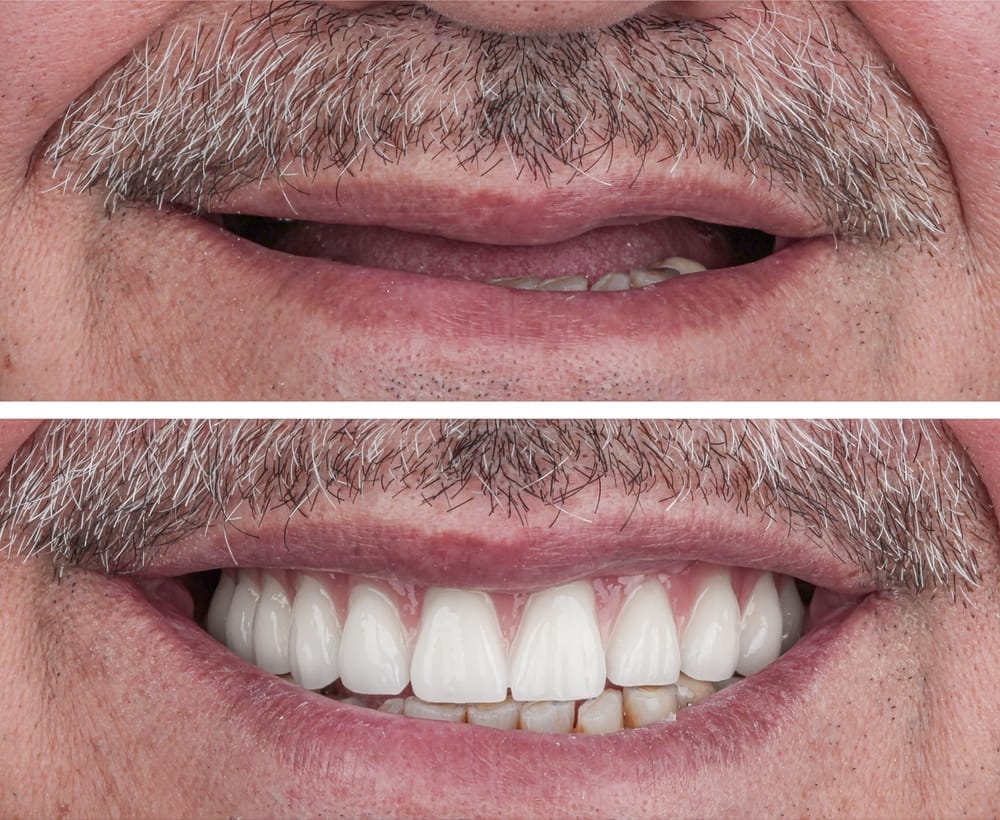 Missing teeth can significantly impact quality of life. Traditionally, bridges and dentures were the main options for replacement. However, modern dental implant technology now offers a natural-looking, long-term alternative. This article explores dental implants and their benefits over other treatments.
Missing teeth can significantly impact quality of life. Traditionally, bridges and dentures were the main options for replacement. However, modern dental implant technology now offers a natural-looking, long-term alternative. This article explores dental implants and their benefits over other treatments.
What are Dental Implants?
Dental implants are synthetic tooth roots that are surgically placed into the jawbone. They are constructed primarily of titanium, as it is a biocompatible metal that bonds well with living bone. During the procedure, a small titanium implant cylinder is carefully threaded into the jawbone where the missing tooth’s root would have been.
Once surgically positioned, the implant fuses and integrates with the surrounding jawbone in a process called osseointegration. This usually takes between 3-6 months to complete. During this time, the implant essentially acts as the new “root” for the replacement tooth. Once osseointegration is achieved, an abutment is attached to the implant, which protrudes through the gumline. A custom-made crown can then be placed on top of the abutment to complete the restoration.
The Benefits of Dental Implants
Dental implants provide several key advantages over more traditional tooth replacement options like bridges and dentures. Primary among these is the unprecedented level of stability and security that implants offer. Because implants fuse directly into the jawbone, they replicate the natural positioning of original tooth roots very accurately.
This solid anchoring of implants allows them to withstand considerable lateral, vertical, and torquing forces during normal chewing and grinding. Patients with implant-supported teeth can eat steak or bite into an apple with full confidence that their replacement teeth will not loosen or shift over time.
In contrast, bridges and dentures rely on being cemented or adhered in place, respectively, leaving more potential for slippage of an ill-fitting prosthesis over years of use.
Dental implants have also been shown to preserve both the structure and health of the jawbone itself after tooth loss.
Without a new root system to maintain bone density, the jawbone will naturally start to resorb or shrink after extractions. Implants intercept this process by acting as substitute roots to conduct stresses to the bone.
With maintained bone levels, patients can better retain original facial contours and fullness over lifetime.
- Natural Appearance- Implants and crowns perfectly mimic real teeth for a flawless smile.
- Improved Function- Implants restore full ability to eat, talk and feel comfortable.
- Long-Lasting Solution- With proper care, implants can function 15-20+ years. Success rates are 95-98%.
- Risk Reduction- Implants eliminate issues like gum disease and nerve damage linked to removable options.
- Restored Confidence- Replacing lost teeth boosts self-esteem for smiling, eating and socializing freely.
- Stability and Security– Implants fuse directly to the jawbone for strong, stable biting without movement.
- Preserved Bone and Gums– Implants prevent jawbone and gum resorption from tooth loss.
Who is a Candidate?
Generally healthy individuals missing one or more teeth due to various causes may qualify for dental implants. A thorough examination by an implant dentist can determine if a patient’s oral health and anatomy are suitable for the treatment.
Some of the key evaluation points include sufficient bone volume at the implant site, adequate interarch space, and the presence of good oral hygiene habits. Patients must also be non-smokers, as smoking greatly hinders the integration process of implants fusing with the jaw. Those with uncontrolled medical conditions like diabetes may also require extensive periodontal treatment before implants can be considered.
For patients missing several teeth, implant placement often occurs in stages. The dentist will want to verify the condition of the initial implants before proceeding with additional implant restorations. During the healing periods between stages, interim fixed or removable prostheses help keep function and aesthetics.
Superior Long-Term Value
While dental implants involve greater up-front expenses compared to bridges or dentures, they prove much more cost-effective over many years of service. Implants are constructed from durable, medical-grade titanium designed to withstand extensive masticatory forces indefinitely with no signs of wear.
Provided they receive continued supportive care with cleanings and check-ups, implants can last for 15-20 years or longer according to longitudinal studies.
No other type of tooth replacement can achieve such dependable, consistent functioning over decades of use. In contrast, bridgework requires replacing compromised or broken-down retainers every 5-10 years on average.
Multiple denture reline and repair procedures also accumulate significant lifetime costs.
Dental implants offer a revolutionary solution for long-lasting, natural tooth replacement. Their established success rates and long-term cost savings make them an excellent choice for restorative dentistry. Interested individuals should consult an implant dentist.



Leave a Reply